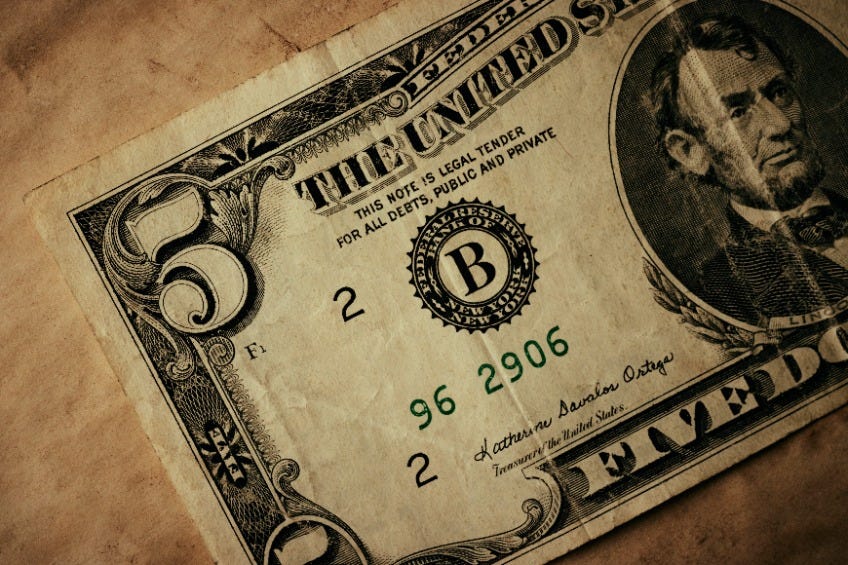Today In Black History
The History of Watchnight Services
Issue #445 Black History Wednesday, January 3, 2024
Welcome to this Today in Black History post. Black History IS American History, no matter how hard some people try to erase our history and contributions.
A lot of this information is available at yenoba.com, blackfacts.com, and onthisday.com.
This post is free to read/listen to for two days. To have 365 24/7 access to all our posts and podcast episodes and financially support “We Are Speaking” for no more than $5 per month, please subscribe at the paid level.
Are you an independent author or creative professional looking for a place where you can tackle those branding and marketing challenges and learn with me through valuable books and online courses? The Global Creative Community Branding and Marketing Academy (GCC BMA) is for you!
Today’s Black WOW!
The origins of Watchnight services can be traced back to slavery. During that time, slaves were not allowed to freely practice their own religious beliefs. However, they found ways to gather together in secret to celebrate their faith and seek solace in their shared experiences. One of these clandestine gatherings occurred on New Year's Eve, where slaves would come together at midnight to pray for freedom, deliverance, and a better future.
December 31, 1862, was an especially significant Watchnight as slaves held in the Confederate States were anticipating gaining their freedom at midnight on January 1, 1863, when the provisions of the Emancipation Proclamation took effect.
For many years, Watchnight services were held in hidden places such as cabins, fields, or secluded areas of plantations. Slaves would gather in small groups, singing spirituals, sharing stories, and praying for the strength to endure their hardships. These services became a symbol of hope and resilience, reminding the enslaved community that they were not alone and that they could find solace in their faith.
After the abolition of slavery, Watchnight services continued to evolve within the Black church community. They became official church services held on New Year's Eve, where congregants come together to reflect on the past year and pray for guidance and blessings for the year ahead. The services often include worship, singing, preaching, and testimonies, creating an atmosphere of spiritual renewal and anticipation for the future. The services often begin late in the evening and continue until midnight, symbolizing the transition from the old year to the new.
In addition to the religious aspect, Watchnight services have also become a time for African Americans to come together and celebrate their cultural heritage, as December 31 is the 6th day of Kwanzaa, leading to the 7th and final day of Kwanzaa, “Imani” or Faith.
Many churches incorporate elements of African traditions and music into the services, tying them back to their ancestral roots. The lively singing, energetic dancing, and vibrant worship create a sense of joy and unity that is unique to Watchnight celebrations.
While the history of Watchnight services is rooted in the struggles of the past, they continue to be a source of inspiration and resilience for the African American community.
Today In Black History
- In 1848, Joseph Jenkins Roberts was sworn in as the first president of the Republic of Liberia.
- In 1853, Solomon Northup, author of “Twelve Years a Slave,” was freed by the governor of New York after 7 years of illegal slavery in that state.
- In 1947, Congressman William Dawson became the 1st Black to head a congressional committee, now known as the Committee of Oversight and Reform.
- In 1961, Congressman Adam Clayton Powell, Jr., was elected Chair of the House Education and Labor Committee.
- In 1966, Floyd B. McKissick was named the national director of CORE, the Congress of Racial Equity.
- In 1966, Robert C. Henry became the 1st Black mayor in Ohio when he assumed office in Springfield, Ohio.
- In 1966, 21-year-old Sammy Younge, Jr., was shot dead by a 67-year-old white service station attendant because he used the “whites only” restroom.
- In 1969, Congressman Adam Clayton Powell, Jr., was seated by Congress after a failed Select Committee investigation that was intended to expel him.
- In 1969, Louis Stokes was sworn in as the 1st African American congressman from Ohio.
- In 1984, Rev. Jesse Jackson secured the release of Black Navy Lieutenant Robert Goodman who had been shot down over Damascus, Syria, and held hostage.
- In 1994, South Africa restored citizenship to more than 7 million Black South Africans.
The “Comments” feature has been disabled. Instead, let’s discuss these facts in our community on Substack Notes. You can also read other Substack publications without subscribing to them when you join Notes.




